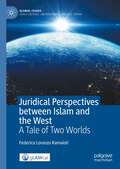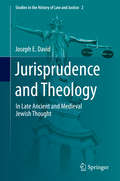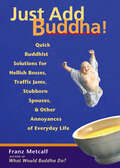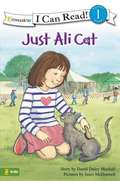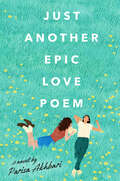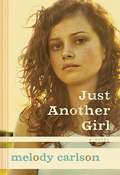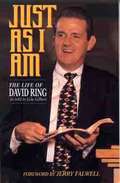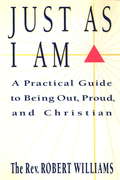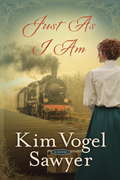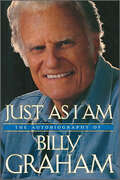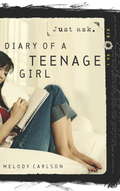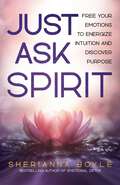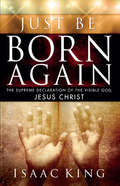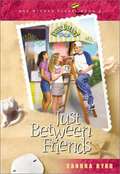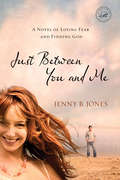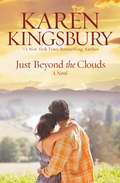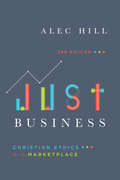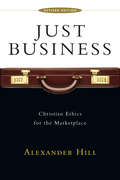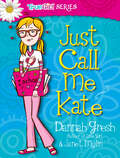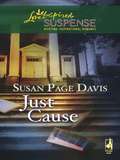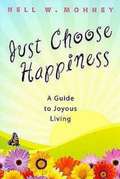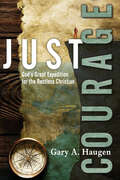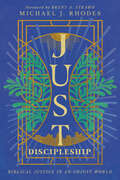- Table View
- List View
Juridical Perspectives between Islam and the West: A Tale of Two Worlds (Global Issues)
by Federico Lorenzo RamaioliThis comparative philosophy of law book aims at formulating a new analytical approach to the Islamic legal tradition based on ‘juridical categories’, a concept that facilitates comprehension and understanding of juridical phenomena. Building upon legal comparativism and legal pluralism, this project intends to avoid bias caused by universalizing Western categories when analyzing foreign juridical notions, which inevitably results in the miscomprehension of non-Western ideas and institutions. Unlike existing literature, this project will not focus on substantive comparisons between normative contents, but on the ‘juridical perspectives’ that helped to shape the Islamic and Western legal orders.The book focuses on the most relevant juridical questions regarding the Islamic and Western legal perspectives, such as the different visions regarding juridical spatiality, the role of human reason and the relationship between law, man and the divinity. While contributing to legal philosophy, this work intends also to develop and define a new interdisciplinary approach, aiming to provide a starting point for novel analyses in research fields such as legal comparativism, legal pluralism, and constitutional law. Finally, by formulating a new interdisciplinary approach, it will provide a foundational discussion of a continuously evolving subject that will never be exhaustively explored. As such, it aims at broadening scholarly reflections on the relationship between the West and Islam, eventually placing these concepts within a suitably comprehensive and contextualized framework. "Published in cooperation with gLAWcal - Global Law Initiatives for Sustainable Development, Hornchurch, Essex, United Kingdom".
Jurisprudence and Theology
by Joseph E. DavidThe book provides in depth studies of two epistemological aspects of Jewish Law (Halakhah) as the 'Word of God' - the question of legal reasoning and the problem of knowing and remembering. - How different are the epistemological concerns of religious-law in comparison to other legal systems? - In what ways are jurisprudential attitudes prescribed and dependent on theological presumptions? - What specifies legal reasoning and legal knowledge in a religious framework? The author outlines the rabbinic jurisprudential thought rooted in Talmudic literature which underwent systemization and enhancement by the Babylonian Geonim and the Andalusian Rabbis up until the twelfth century. The book develops a synoptic view on the growth of rabbinic legal thought against the background of Christian theological motifs on the one hand and Karaite and Islamic systemized jurisprudence on the other hand. It advances a perspective of legal-theology that combines analysis of jurisprudential reflections and theological views within a broad historical and intellectual framework. The book advocates two approaches to the study of the legal history of the Halakhah: comparative jurisprudence and legal-theology, based on the understanding that jurisprudence and theology are indispensable and inseparable pillars of legal praxis.
Just Add Buddha!: Quick Buddhist Solutions for Hellish Bosses, Traffic Jams, Stubborn Spouses, and Other Annoyances of Everyday Life
by Franz Metcalf“A diverse and edifying collection of practices to use in annoying and difficult circumstances” from the author of What Would Buddha Do? (Spirituality & Practice).Written for spiritual seekers who deal with unenlightened coworkers and inconsiderate bank tellers more often than Zen masters and Tibetan monks, this book demonstrates the practical side of Buddhism. Author Franz Metcalf shows how to weave simple vows, quick rethinks, instant relaxations, fast visualizations, and many other stripped-down Buddhist practices into every area of life. Individually, Metcalf’s techniques work as quick fixes for specific dilemmas, but woven together, they gradually strengthen one’s spiritual base when one day a habitual way of being has been quietly transformed. While not written to impress pure Buddhists, this book takes Buddhism seriously. Approachable sections on Buddhism’s rich tradition and a sprinkling of quotes from ancient scripture and contemporary teachers connect the book’s practices to the deeper wisdom underlying them. Always, Just Add Buddha! remains squarely focused on daily life, drawing out the most practical aspects of Buddhism.
Just Ali Cat (I Can Read! #Level 1)
by Dandi Daley MackallA Lesson in Recognizing Inner Beauty. Ali Cat is a very friendly cat. And Katy thinks she is beautiful! But will the pet show judges think so too?
Just Another Epic Love Poem
by Parisa AkhbariBest friendship blossoms into something more in this gorgeously written queer literary romance."The heartache and longing of witnessing a beloved character pine hopelessly over her best friend has never brought me this much unadulterated joy." –National Book Award Finalist Sonora Reyes, author of The Lesbiana&’s Guide to Catholic SchoolOver the past five years, Mitra Esfahani has known two constants: her best friend Bea Ortega and The Book—a dogeared moleskin she and Bea have been filling with the stanzas of an epic, never-ending poem since they were 13.For introverted Mitra, The Book is one of the few places she can open herself completely and where she gets to see all sides of brilliant and ebullient Bea. There, they can share everything—Mitra&’s complicated feelings about her absent mother, Bea&’s heartache over her most recent breakup—nothing too messy or complicated for The Book.Nothing except the one thing with the power to change their entire friendship: the fact that Mitra is helplessly in love with Bea.Told in lyrical, confessional prose and snippets of poetry Just Another Epic Love Poem takes readers on a journey that is equal parts joyful, heartbreaking, and funny as Mitra and Bea navigate the changing nature of I love you.
Just Another Girl: A Novel
by Melody CarlsonAster Flynn must spend all of her free time with her younger sister Lily, who is mentally handicapped. Aster desperately longs to be a normal teenager. When a cute guy takes an interest in her, Aster hatches a plan to get her workaholic mother and deadbeat dad to be the parents Lily needs.
Just As I Am, The Life of David Ring
by Lela Gilbert David Ring"For those who do not believe in miracles, this book is must reading. For those who do believe in miracles, it will be a confirming blessing. I commend it with joy" Adrian Rogers, Pastor, Bellevue Baptist Church
Just As I Am: A Practical Guide to Being Out, Proud, and Christian
by Robert WilliamsThe first openly gay man to be ordained an Episcopal priest offers lesbians and gays good news about being Christian and homosexual, discussing the positive images of homosexuality in the scriptures and more.
Just As I Am: A Short Story Extra for What Once Was Lost
by Kim Vogel SawyerIn this romantic 19th century-set short fiction follow-up to What Once Was Lost, while setting the stage for Sawyer's next novel, Echoes of Mercy, a young woman must let go of past rejections to find hope in the meaningful future God wants for her. Daisy Forrester has been raised in Brambleville, Kansas at Dunnigan's Orphan Asylum by Levi and Christina Jonnson. As she has watched younger, more appealing orphans come and go on to new families, Daisy has spent years becoming a valued helper for Ma and Pa Jonnson, as the orphans call them. However, she is coming up on her sixteenth birthday, and it will soon be time for her to make her own way in the world. Nervous about leaving the farm, she turns to the one connection she has out in the world--Robby, a friend who left the asylum before her and is now employed in Sinclair, Kansas at Dinsmore's World Famous Chocolate Factory. Daisy heads for the safe harbor that is his friendship, but the outside world doesn't offer the friendly welcome that Daisy dreams of and Robby faces unique challenges of his own in the form of an eager co-worker bent on sending Daisy back to Brambleville. Can Daisy look beyond her own insecurities to embrace a young man with great affection for her, and a God who calls her 'beloved'--just as she is?
Just As I Am: The Autobiography of Billy Graham
by Billy GrahamThe Commemorative Edition of the evangelist’s autobiography. “The reader gets a good glimpse of Graham’s private life . . . [He] is plain-spoken and candid.” —USA TodayHailed as “the world’s preacher,” Billy Graham enjoyed a career that spanned six decades and his ministry of faith touched the hearts and souls of millions.In Just As I Am, a #1 New York Times bestseller, Graham reveals his life story in what the Chicago Tribune calls “a disarmingly honest autobiography.” With down-to-earth warmth and candor, Graham tells the stories of the events and encounters that helped shape his life. He recounts meetings with presidents, celebrities, and world leaders, including Harry S. Truman, Winston Churchill, Queen Elizabeth, and the Shah of Iran, and shares his own spiritual journey as he movingly reflects on his personal life and relationships. This is an inspirational and unforgettable portrait that will be treasured by readers everywhere.“Although the high political anecdotes keep one amused throughout this tome, and the story of Graham’s life itself is so remarkable, underlying regret propels the book with a sadness that is strangely haunting.” —The New York Times Book Review“One of the most remarkable evangelistic careers in American religious history . . . the ultimate insider’s perspective on the mix of religion and White House politics.” —St. Paul Pioneer Press“For nearly five decades, Graham has, in his crusades around the globe, given the world what it has often believed to be a glimpse of America . . . in his openness, his capacity for growth, his artlessness and simple geniality, he has also shown the world our best self.” —Los Angeles Times
Just Ask
by Melody CarlsonWho Do You Ask When You Don't Have the Answers? What's a girl to do when caught between a rock and a hard place? The "hard place" is losing the use of her beloved car, and the "rock" is her immovable dad. In order to regain driving privileges, Kim Peterson's dad talks her into writing an advice column for teens in his newspaper. Kim reluctantly agrees and writes under a pen name. But as she reads letters from peers and friends, she becomes keenly aware of two things: (1) Some kids have it way worse than her, and (2) she doesnothave all the answers! Who can she turn to? Thursday, September 1 I've been saving for my own car, but my parents decided that I can only get a car if I keep a clean driving record. That means absolutely NO tickets-period-nada. And the policeman said he'd clocked me going 72 in a 55 mile zone. Oops. When Kim Peterson gets a speeding ticket, her dad offers her a way to retain her driving privileges. If she'll write the anonymous teen advice column for his newspaper, she can still get a car. So Kim becomes "Jamie" of "Just Ask Jamie. " No big deal, she thinks. She answers letters about stuff that's everyday and stuff that's not: parents, piercings, dating, drugs, depression, and people who are just users. Nothing Kim can't handle. But when a classmate is killed, the letters turn to questions about life, death, and what it all means. And Kim starts to wonder if she really does have all the answers-and if not, where to find them. The Christian faith of her adoptive family? The Buddhism of her Korean heritage? Who can she turn to-to just ask? Story Behind the Book "My teenage years remain vivid in my mind. It was a turbulent time full of sharp contrasts-love and hate, pain and pleasure, trust and doubt. Then, just as I reached my peak of questioning, rebelling, and seeking, I found God. And I found Him in a really big way! My life turned completely around and has, thankfully, never turned back. Hopefully this story will touch and change hearts-speaking to teen girls right where they live, reminding readers that God is alive and well and ready to be intimately involved in their lives right now! " From the Trade Paperback edition.
Just Ask
by Melody CarlsonWho Do You Ask When You Don't Have the Answers? What's a girl to do when caught between a rock and a hard place? The "hard place" is losing the use of her beloved car, and the "rock" is her immovable dad. In order to regain driving privileges, Kim Peterson's dad talks her into writing an advice column for teens in his newspaper. Kim reluctantly agrees and writes under a pen name. But as she reads letters from peers and friends, she becomes keenly aware of two things: (1) Some kids have it way worse than her, and (2) she does not have all the answers! Who can she turn to? Thursday, September 1 I've been saving for my own car, but my parents decided that I can only get a car if I keep a clean driving record. That means absolutely NO tickets--period--nada. And the policeman said he'd clocked me going 72 in a 55 mile zone. Oops. When Kim Peterson gets a speeding ticket, her dad offers her a way to retain her driving privileges. If she'll write the anonymous teen advice column for his newspaper, she can still get a car. So Kim becomes "Jamie" of "Just Ask Jamie." No big deal, she thinks. She answers letters about stuff that's everyday and stuff that's not: parents, piercings, dating, drugs, depression, and people who are just users. Nothing Kim can't handle. But when a classmate is killed, the letters turn to questions about life, death, and what it all means. And Kim starts to wonder if she really does have all the answers--and if not, where to find them. The Christian faith of her adoptive family? The Buddhism of her Korean heritage? Who can she turn to--to just ask? Story Behind the Book"My teenage years remain vivid in my mind. It was a turbulent time full of sharp contrasts--love and hate, pain and pleasure, trust and doubt. Then, just as I reached my peak of questioning, rebelling, and seeking, I found God. And I found Him in a really big way! My life turned completely around and has, thankfully, never turned back. Hopefully this story will touch and change hearts--speaking to teen girls right where they live, reminding readers that God is alive and well and ready to be intimately involved in their lives right now! "From the Trade Paperback edition.
Just Ask Spirit: Free Your Emotions to Energize Intuition and Discover Purpose
by Sherianna BoyleWhen life feels frightening or uncertain . . . Just Ask Spirit! Readers interested in wellness, mindfulness, and developing their own intuitive gifts will discover the profound relationship between mental health and spirituality, and how emotions and Spirit, working together, offer infinite resources for connecting them to higher wisdom, healing, clarity, love, direction, purpose, and more. Emotions and Spirit are inextricably linked. When we block, control, or constrict our emotions, we also block the innate wisdom of Spirit to help and heal us. Instead, imagine a mindful practice, one that could allow us to receive healing, guidance, wisdom, clarity, and reassurance anytime we need it. Imagine that this guidance came from pure source energy, untarnished by restrictive, limited beliefs, judgment, thoughts, or attitudes. Sherianna Boyle, bestselling author of Emotional Detox and host of the popular podcast Just Ask Spirit, knows this is what is possible when we unify emotions and spirit. Just Ask Spirit does what few books can—it humanizes the mystical. It offers gifts that are accessible to all of us—like receiving spiritual direction and communicating with our guides and angels—while showing how this process interconnects with psychology and the science of our emotions, giving readers tools and techniques to apply to all aspects of their lives. Using practices backed by both science and ancient wisdom, Just Ask Spirit, provides an inner roadmap for building resiliency and overcoming obstacles, for developing intuition, spirit connection, and understanding what it means to ask.
Just Be Born Again: The Supreme Declaration of the Visible God, Jesus Christ
by Isaac KingJesus answered and said…, &“Unless one is born again, he cannot see the kingdom of God&” (John 3:3). A lot of people do not have the assurance they will go to heaven when they die. Jesus made it clear in John 3:3-5 that to enter heaven each of us must be born again. If you do not have a personal relationship with Jesus, author Isaac William King will show you how you can be born again, just as Jesus said. And for those who already believe in Christ, Just Be Born Again details how you can know Him intimately. Whether you have just encountered Jesus for the first time or have walked with Him for years, you will learn how to be filled with the Holy Spirit and know God like you would your best friend. God loves you and wants you to enjoy a life-changing relationship with Him every day!
Just Between Friends (The Hidden Diary Book #3)
by Sandra ByrdBook 3 of The Hidden Diary series. A lost dog about to have puppies puts the two girls into a jam. Lucy's cottage has a strict policy and Serena's dad has allergies. Finding a solution teaches them both about trusting others and teamwork.
Just Between You and Me: A Novel of Losing Fear and Finding God
by Jenny JonesThe only thing scarier than living on the edge is stepping off it.Maggie Montgomery lives a life of adventure. Her job as a cinematographer takes her from one exotic locale to the next. When Maggie's not working, she loves to rappel off cliffs or go skydiving. Nothing frightens her.Nothing, that is, except Ivy, Texas, where a family emergency pulls her back home to a town full of bad memories, painful secrets, and people Maggie left far behind . . . for a reason.Forced to stay longer than she intended, Maggie finds her family a complete mess, including the niece her sister has abandoned. Ten-year-old Riley is struggling in school and out of control at home. The only person who can really handle the pint-sized troublemaker is Conner, the local vet and Ivy's most eligible bachelor. But Conner and Maggie keep butting heads--he's suspicious of her and, well, she doesn't rely on anyone but herself.As Maggie humorously fumbles her way from one mishap to another, she realizes she's going to need to ask for help from the one person who scares her the most.To save one little girl--and herself--can Maggie let go of her fears and just trust God?
Just Beyond the Clouds: A Novel (Cody Gunner Series #2)
by Karen Kingsbury#1 bestselling author Karen Kingsbury tells the heartwrenching story of Cody Gunner, a widower fighting for stability, and the woman who wants to help him trust again--even when trust is the most terrifying thing of all.Still aching over his wife's death, Cody Gunner can't bear the thought of also letting go of his Down's Syndrome brother, Carl Joseph. Cody wants his brother home, where he will be safe and cared for, not out on his own in a world that Cody knows all too well can be heartless and insecure. So when Carl Joseph's teacher, Elle, begins championing his independence, she finds herself at odds with Cody. But even as these two battle it out, they can't deny the instinctive connection they share, and Cody faces a crisis of the heart. What if Elle is the one woman who can teach Cody that love is still possible? If Cody can let go of his lingering anger, he might just see that sometimes the brightest hope of all lies just beyond the clouds.
Just Business: Christian Ethics for the Marketplace
by Alexander Hill"An ethical man is a Christian holding four aces." So said Mark Twain. But practicing Christians, at least, want to be ethical in all areas of life and work--not just when they are holding four aces. To those faced with the many questions and quandaries of doing business with integrity, Alexander Hill offers a place to begin. Alexander Hill carefully explores the foundational Christian concepts of holiness, justice and love. These keys to God's character, he argues, are also the keys to Christian business ethics. Hill then shows how some common responses to business ethics fall short of a fully Christian response. Finally, he turns to penetrating case studies on such pressing topics as employer-employee relations, discrimination and affirmative action, and environmental damage. This is an excellent introduction to business ethics for students and a bracing refresher for men and women already in the marketplace.
Just Call Me Kate (True Girl Fiction)
by Dannah Gresh Janet MylinSixth-grader Kate Harding has bigger problems than trying to get her parents to stop call her "Katie." She has a major crush on her older brother's best friend: Zachary Donaldson. In a moment of insanity, she dares to write his name on the bathroom wall in eight-inch high pencil letters. It doesn't take Principal Butter long to match the handwriting to the doodling on her book covers. Kate is sent to detention where she meets up with three new friends who decide to become the Secret Keeper Girl Club. Her case of boy craziness is doused with some good advice from her new friends.
Just Call Me Kate (True Girl Fiction)
by Dannah Gresh Janet MylinSixth-grader Kate Harding has bigger problems than trying to get her parents to stop call her "Katie." She has a major crush on her older brother's best friend: Zachary Donaldson. In a moment of insanity, she dares to write his name on the bathroom wall in eight-inch high pencil letters. It doesn't take Principal Butter long to match the handwriting to the doodling on her book covers. Kate is sent to detention where she meets up with three new friends who decide to become the Secret Keeper Girl Club. Her case of boy craziness is doused with some good advice from her new friends.
Just Cause
by Susan Page Davis"I didn't kill my husband!" But no one believed Laurel Hatcher. On trial for murder, Laurel prayed for a miracle. And she got one, sort of: a deadlocked jury. A mistrial meant going through the ordeal all over again, but at least she'd have more time to prove her innocence. And now handsome police officer Dan Ryan was on her side, determined to find evidence that would clear her name. But Laurel didn't even know what to look for--or who would want her husband dead. Until Dan took her back to the scene of the crime. . . where a killer was waiting.
Just Choose Happiness: A Guide to Joyous Living
by Nell W. MohneyNell W. Mohney, adapted from the Introduction:"In seminars I have conducted over a thirty-year period, I have discovered that the quality most wanted by Americans is happiness. Many of those seminar participants drove to the seminars in luxury cars, and they looked well fed and well dressed. Yet, individually, they often expressed disappointment with life and admitted to having a feeling of emptiness. They wanted, and even felt entitled to, more happiness.…I am one of those who truly believe that the basic answer to happiness is a spiritual one. We are made for God, and as Saint Augustine said, “Our hearts are restless ‘til they rest in thee.” All parts of our personalities are drawn to wholeness and happiness when Christ is resident within.In studying the life of Christ, I remembered that although Jesus was a man of sorrow and acquainted with grief, more than anything else he was a person of joy and happiness.… Even his purpose in coming into the world is revealed in John 10:10: “I came that they might have life and have it abundantly.” This abundant life, I believe, is not just in the world to come but in the here and now, where a series of committed choices can cause your spirit to sing."
Just Courage: God's Great Expedition for the Restless Christian
by Gary A. Haugen"There must be more to the Christian life than this—more than church each Sunday and waving to my neighbors and giving some clothes to Goodwill when I go through my closet each spring." These aren't bad things, of course. But they're safe and comfortable and easy. And there's a reason they're not satisfying your desire for something more significant and meaningful—we're created by God for adventure. International Justice Mission president Gary Haugen has found that engaging in the fight for justice is the most deeply satisfying way of life. This book shows how we too can be a part of God's great expedition.
Just Discipleship: Biblical Justice in an Unjust World
by Michael J. RhodesMany Christians and churches are rediscovering that God cares deeply about justice, but opinions abound as to what an approach to biblical justice might look like in contemporary society. What exactly does the Bible mean by justice, and what does it have to do with poverty, racism, and other issues in our world? More importantly, how do we become the kind of people who practice justice? Biblical scholar Michael Rhodes argues that the Bible offers a vision of justice-oriented discipleship that is critical for the formation of God's people. Grounded in biblical theology, virtue ethics, and his own experiences, he shows that justice is central to the Bible, central to Jesus, and central to authentic Christian discipleship. Justice stands at the heart of Scripture. Following Jesus demands that we become just disciples in an unjust world.
